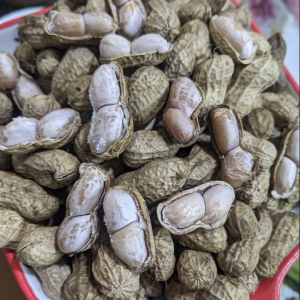
Lupins are legumes packed with powerful health benefits, particularly for heart health. Thanks to their high content of plant-based proteins, fiber, and unsaturated fatty acids, they’re a natural ally in supporting cardiovascular well-being.
Although they’re often underestimated, lupins deserve a spot in our daily diet for their positive impact on the heart. With their rich nutritional profile—including protein, fiber, and healthy fats—lupins are a wholesome and versatile food that can truly make a difference in supporting heart health.

Why Lupins Are Good for Your Heart
Lupins are an excellent source of plant-based protein and dietary fiber, two key components of a balanced diet.
These legumes are also rich in unsaturated fatty acids like omega-3 and omega-6, which play a vital role in improving cholesterol levels—lowering the “bad” LDL cholesterol and increasing the “good” HDL cholesterol. These effects help reduce the risk of cardiovascular diseases, such as atherosclerosis, and support overall heart function.
Additionally, lupins contain potassium, which helps regulate blood pressure, and B vitamins like B1 and B9, which are essential for maintaining a healthy heart. This combination of nutrients makes lupins a natural “heart saver,” perfect for those looking to maintain strong cardiovascular health.

How to Safely Eat Lupins
Fresh lupins contain a compound called lupinine, which can be toxic in large amounts. That’s why it’s essential to properly prepare lupins before eating. Typically, they’re sold pre-cooked or in brine, making them safe for consumption. If you buy dried lupins, they need to be cooked thoroughly and rinsed multiple times to remove the lupinine.
Once properly prepared, lupins are incredibly versatile in the kitchen. They can be enjoyed as a healthy snack, tossed into salads, blended into hummus or veggie burgers, or served as a tasty side with grains and vegetables. Their mildly bitter flavor makes them a unique and nutritious option for those seeking healthy, plant-based alternatives.

Precautions and Potential Side Effects
Despite their many health benefits, lupins aren’t suitable for everyone. People with legume allergies should avoid them, as they may trigger allergic reactions. Lupins also contain purines, which can raise uric acid levels in the blood, so individuals with gout or hyperuricemia should limit their intake.
Lastly, make sure the lupins you eat have been properly processed. If they taste overly bitter, they may not have been rinsed or cooked adequately—and in that case, it’s best not to eat them.
In Summary
Lupins are a highly nutritious legume, rich in protein, fiber, and healthy fats. When properly prepared, they can help improve heart health and lower the risk of cardiovascular disease. Including them in your everyday meals is a smart, nourishing choice that adds both flavor and wellness to your diet.




